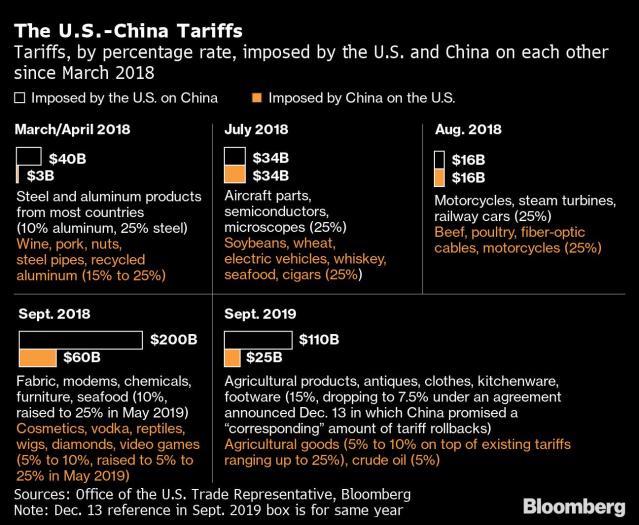US tariffs on more than $300 billion in annual imports from China provide significant leverage and are useful from a negotiating standpoint, President Joe Biden’s trade chief said amid a debate within his administration on whether to keep the duties in place.
“The China tariffs are, in my view, a significant piece of leverage, and a trade negotiator never walks away from leverage,” US Trade Representative Katherine Tai said at a Senate hearing on Wednesday in response to a question from Senator Bill Hagerty, a Tennessee Republican, about whether removing the duties would encourage “more bad behavior” by Beijing.
The comments come after Biden on June 18 said that he’s in the process of making up his mind on whether to remove any of the duties. They were first imposed by then-President Donald Trump starting in 2018 to pressure China to end intellectual-property abuses and the practice of forced-technology transfer.
Tai also said that there’s “a limit to what we can do” to ease inflation through tariff changes.
“Next steps on actions, they’re pending” with Biden right now, Tai told the senators.
The remarks contrast with those of US Treasury Secretary Janet Yellen, who said earlier this month that the tariffs have hurt American consumers and businesses and are contributing to the fastest inflation in 40 years. Reductions in the duties could help bring down prices, Yellen said, while acknowledging that cuts aren’t “a panacea” for addressing inflation. The Biden administration is looking to “reconfigure” the tariffs, she said.

Commerce Secretary Gina Raimondo also said earlier this month that it “may make sense” to lift tariffs on some goods as a way to tame inflation.
The US must use all available tools and develop new ones to defend its economic interests and values against China’s unfair practices after talks showed clear limits to the nation’s willingness to live up to past commitments, Tai said on Wednesday.
The US, through direct discussions with China’s leaders starting in October 2021, pressed Beijing to live up to the so-called phase one trade agreement reached with the Trump administration, Tai said. But several rounds of “difficult discussions” made clear that the nation isn’t interested in fully following through, she said.
“This has become part of a pattern,” Tai said. “The United States has repeatedly sought and obtained commitments from China, only to find that lasting change remains elusive.”
The US now needs to turn the page on the old playbook, she said, repeating previous comments. The US has brought a renewed focus to engaging with partners and allies who are hurt by China’s unfair trade and economic practices, Tai said. Biden recognizes that the US needs to work with other countries to confront policies that “are fundamentally at odds with the modern global trading system,” she said.
Beijing and Washington fought a trade war from 2018 to early 2020, when they called a truce after China made commitments to increase imports from the US over the next two years and address intellectual-property concerns. Still, the US kept in place tariffs on more than $300 billion in annual imports from its geopolitical rival, and China’s buying fell short of its purchasing commitments.
While some businesses have benefited from protection from Chinese imports, companies that use the goods as inputs in areas including manufacturing have been hurt. Both Democratic and Republican lawmakers have pushed the Biden administration to broaden and deepen an exclusion process for the tariffs and review past product denials.
The duties support the Biden administration’s “deliberative, long-term vision” for realigning the relationship with China with US priorities, Tai said.

Follow us on social media: